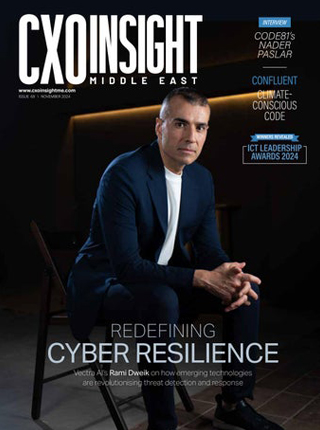Riyadh Municipality and Elm have appointed IBM as the Strategic Blockchain Partner for the city of Riyadh, Saudi Arabia. IBM will work with Elm to define a blockchain roadmap for the municipality with the aim to digitise citizen, resident and government experiences and support the transformational objectives of Saudi Arabia’s Vision 2030.
Riyadh Municipality, IBM and Elm, which is a joint-stock company owned by Saudi Arabia’s Public Investment Fund, will conduct workshops with key government, semi-government and private sector organisations in Riyadh to identify and prioritise the municipal services that can be transformed and enhanced by the technology. As an outcome, IBM will identify a high value use case in which blockchain can be applied. IBM will then design and build the municipality’s first blockchain solution, while Elm will be responsible for the integration of the blockchain application with the broader government ecosystem.
A blockchain study, “Building Trust in Governments,” by the IBM Institute for Business Value (IBV), found that several governmental organisations are embracing blockchain technology to promote more extensive collaboration. In the Middle East and Africa, nine out of 10 government executives surveyed see contract management as the greatest potential new business model. By using blockchains for contract management, issues such as the failure of any party to meet a deadline or complete a task, for example, could be more immediately visible.
“Saudi Arabia is taking aggressive steps towards shaping a technology-led transformation and achieving its Vision 2030, with the aim to diversify away from its dependence on oil, accelerate national transformation through digitisation and to make a lasting impact on its citizens,” said Amr Refaat, General Manager, IBM Middle East and Pakistan. “Today, Riyadh Municipality, IBM and Elm collaborate to not only support the transformational objectives of Saudi Arabia’s Vision 2030 but also help digitise and personalize citizen, resident and government experiences and, in turn, improve the quality of life.”
Blockchain is transforming industries and professions across the world, infusing trust and transparency into financial institutions, supply chains, governments and more, while helping to eliminate trillions of dollars of fraud.
“IBM has been at the forefront of this revolution and has been working numerous global customers across the world to transform how their business happens. We have announced the world’s first cross industry blockchain network to track and authenticate diamonds, jewels and precious metals at all stages from mine to market. We have also worked with Walmart to make food safer with blockchain,” said Refaat.
He added that having already gone live with multiple networks globally, many of the challenges are now solved and IBM has frameworks, assets and an understanding of what needs to be addressed when designing a blockchain-based solution.
IBM has been working with numerous private and government organisations to transform how transactions happen in the GCC region. In 2017, Smart Dubai selected IBM as the Strategic Blockchain Partner for its city-wide initiative to develop blockchain services for Dubai.
Additionally, IBM recently helped Department of Economic Development (DED) in Dubai to become one of the first government entities in the world to create a unified corporate registry on IBM Blockchain.
The aim of the registry is to digitise the process of issuing business licenses and exchanging commercial information for business owners, investors, entrepreneurs and start-ups, enabling them to conduct transactions digitally in real-time and in a trusted and secure environment.










Discussion about this post